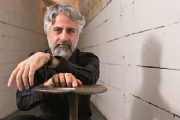
 My Wish List
My Wish List

Title, Name or Code
OR
Product, Artist or Type
OR
Website Release Date
© Chandos Records 2026. All Rights Reserved.

Chandos Records
Chandos House
1 Commerce Park
Commerce Way
Colchester
Essex
CO2 8HX
United Kingdom
Chandos House
1 Commerce Park
Commerce Way
Colchester
Essex
CO2 8HX
United Kingdom






















